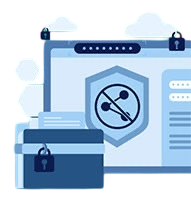5 Effective Tips for Strengthening Your CCPA Compliance Strategy

The California Consumer Privacy Act (CCPA) has redefined how businesses manage personal data, putting consumer rights at the forefront. Compliance is not just a legal obligation—it’s a commitment to transparency and trust in how companies handle data.
This article explores five actionable tips to improve your CCPA compliance strategy, addressing key challenges and offering practical guidance to align your practices with regulatory expectations.
One of the foundational steps for CCPA compliance is understanding the personal data your business collects, processes, and shares. A thorough data inventory enables you to identify potential risks and address compliance gaps.
Map and Classify Your Data
One of the foundational steps for CCPA compliance is understanding the personal data your business collects, processes, and shares. A thorough data inventory enables you to identify potential risks and address compliance gaps.
Steps to Take:
- Identify Data Sources: Catalog all the systems and platforms that collect or store consumer data, such as CRM tools, email marketing software, and analytics platforms.
- Classify Personal Data: Categorize data types, including names, email addresses, IP addresses, purchase history, and geolocation data.
- Map Data Flows: Trace the journey of personal data through your organization, from collection to processing and sharing with third parties.
How a CMP Helps:
A Consent Management Platform (CMP) can streamline this process by consolidating data collection points and providing centralized visibility into your data practices. It helps you track consent and ensures that your data inventory aligns with consumer permissions.
By having a clear understanding of your data ecosystem, you can respond more effectively to consumer requests and comply with disclosure requirements.
CCPA Data Mapping Guide
Learn how to handle data mapping for CCPA/CPRA compliance in this comprehensive guide.

Create a Transparent Privacy Policy
Your privacy policy is a public-facing document that demonstrates your commitment to protecting consumer rights under the CCPA. It’s also a critical component of compliance, as it informs users about their rights and how their data is handled.
What to Include:
- Types of Data Collected: Specify the categories of personal information your business collects and processes.
- Purpose of Data Use: Explain why you collect data, such as for marketing, customer service, or improving website functionality.
- Consumer Rights: Clearly outline rights such as access, deletion, and the ability to opt out of data sales or sharing.
- Opt-Out Instructions: Provide detailed steps for consumers to submit opt-out requests, including links to relevant pages.
How a CMP Helps:
A CMP can integrate opt-out mechanisms directly into your website or application, displaying user-friendly notices and automatically syncing preferences with your privacy policy. This makes compliance seamless while enhancing transparency for consumers.
A privacy policy that is easy to read and free of legal jargon can significantly enhance user trust and compliance readiness.
Provide an Accessible “Do Not Sell My Personal Information” Option
Under the CCPA, businesses must offer California residents the ability to opt out of the sale or sharing of their personal information. This requirement is non-negotiable and applies to both online and offline businesses.
Best Practices for Implementation:
- Visible Placement: Display the link prominently on your homepage, footer, or privacy policy page.
- Dedicated Opt-Out Page: Create a page that explains the implications of opting out and guides users through the process.
- Mobile-Friendly Design: Ensure the link and opt-out page are accessible and functional on all devices.
How a CMP Helps:
A CMP automates the opt-out process, capturing user preferences in real-time, and helps these preferences be consistently applied across all data processing activities. It simplifies compliance by providing an intuitive interface for users to manage their rights.
By making the opt-out process intuitive and hassle-free, you empower consumers to exercise their rights without barriers.
What Does 'Do Not Sell or Share My Personal Information' Mean in CCPA?

Establish Processes for Handling Consumer Requests
The CCPA grants consumers several rights, including the ability to access, delete, or opt out of the sale of their personal information. To comply, businesses must establish clear procedures for handling these requests efficiently.
Key Considerations:
- Verification Protocols: Implement secure methods to verify the identity of individuals submitting requests, such as matching data points provided by the consumer.
- Timely Responses: Fulfill requests within 45 days, with the option of a 45-day extension if necessary. Inform consumers of any delays in processing.
- Record-Keeping: Maintain detailed logs of requests and actions taken for accountability and audit purposes.
How a CMP Helps:
A CMP can track and log consumer requests automatically, helping your team stay on top of response deadlines. It also provides audit-ready records, reducing the administrative burden of manual documentation.
A well-documented request-handling process reduces the risk of non-compliance and strengthens consumer trust.
Regularly Review and Update Your Practices
Compliance is an ongoing effort, not a one-time task. Regularly reviewing and updating your CCPA strategy ensures your business adapts to regulatory changes and evolving consumer expectations.
Steps for Continuous Improvement:
- Conduct Periodic Audits: Evaluate your data collection, processing, and sharing practices to identify potential gaps.
- Train Your Team: Educate employees on CCPA requirements and their role in maintaining compliance.
- Monitor Regulatory Updates: Stay informed about amendments to the CCPA or additional state-level privacy laws.
How a CMP Helps:
A CMP stays updated with the latest compliance requirements and adapts to new regulations, helping your business maintain alignment with evolving standards. It also reduces the need for constant manual updates by automating policy changes.
Proactively addressing potential issues can save your business from costly fines and reputational damage.
Speak to one of our experts about your compliance needs today. Get In Touch With Us →
Common Challenges in CCPA Compliance and How to Overcome Them
- Data Silos: Many organizations struggle with fragmented data stored across multiple systems, making it difficult to process consumer requests.
Solution: Invest in data mapping tools or processes to consolidate information and streamline access.
- Lack of Awareness: Employees unaware of CCPA requirements may inadvertently violate the law.
Solution: Implement ongoing training programs to keep your team informed about their responsibilities.
- Third-Party Risks: Sharing data with vendors or partners can introduce compliance risks if they fail to adhere to CCPA standards.
Solution: Review contracts and establish clear data-sharing agreements that include compliance clauses.
Why CCPA Compliance Matters
Adhering to the CCPA is not just a legal requirement, it’s an opportunity to demonstrate your commitment to consumer privacy. Transparency, accountability, and a strong compliance strategy can set your business apart, fostering trust and loyalty in an increasingly privacy-conscious world.
By implementing these five tips and addressing common challenges, your business can align with CCPA requirements while strengthening its reputation as a responsible data steward.
Adam is the Head of Digital Marketing at Clym, where he leverages his diverse expertise in marketing to support businesses with their compliance needs and drive awareness about data privacy and web accessibility. As one of the company’s original team members, Adam has been instrumental in shaping its journey from the very beginning. When he’s not diving into marketing strategies, Adam can be found cheering on his favorite sports teams or enjoying fishing.
Learn More →
Frequently Asked Questions (FAQs)
What Businesses Must Comply with the CCPA?
The CCPA applies to for-profit businesses that:
- Generate more than $25 million in annual revenue.
- Buy, sell, or share personal data of 50,000 or more California residents annually.
- Derive at least 50% of annual revenue from selling or sharing personal data.
What Rights Do Consumers Have Under the CCPA?
Consumers can:
- Request access to the personal data collected about them.
- Request deletion of their personal information.
- Opt out of the sale or sharing of their personal data.
What Are the Penalties for Non-Compliance?
Penalties include:
- Fines of up to $2,500 per unintentional violation.
- Fines of up to $7,500 per intentional violation.